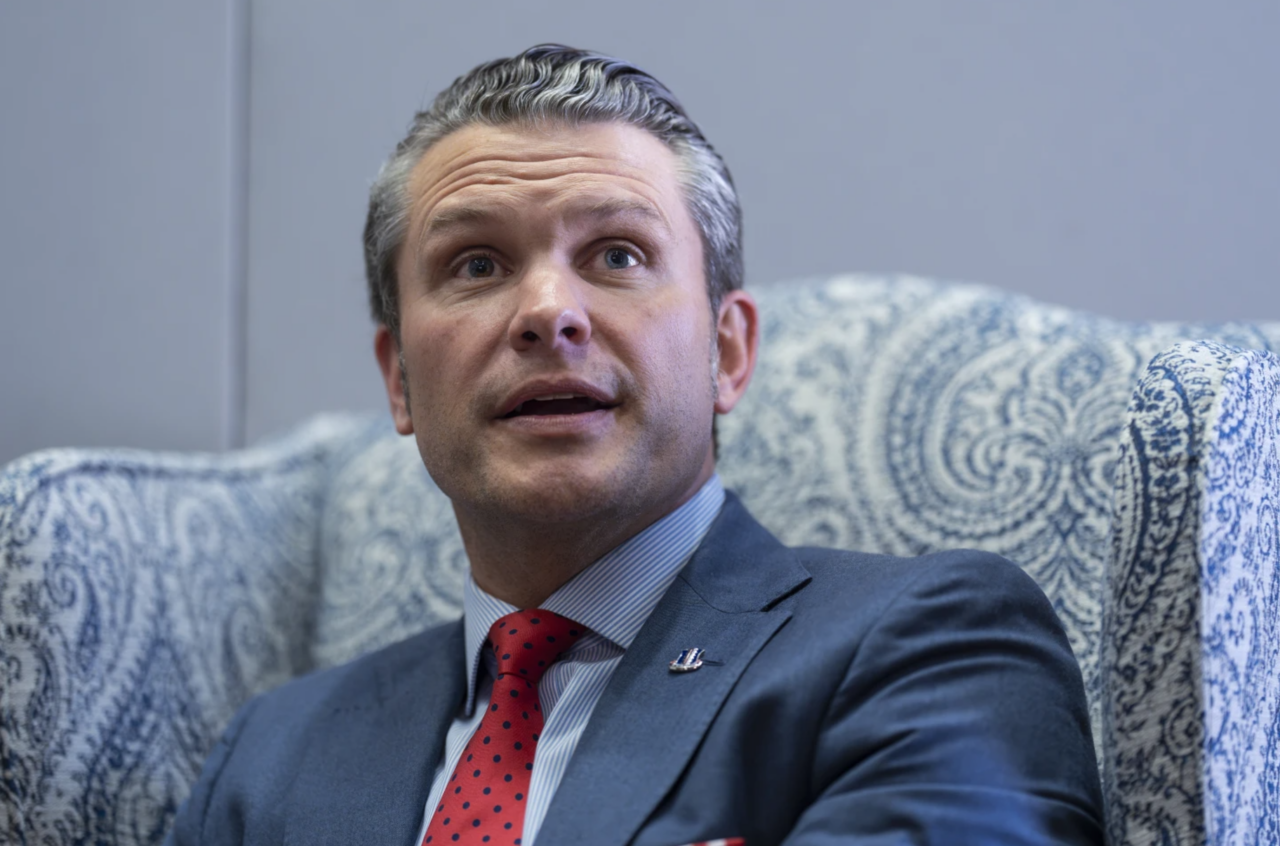U.S. Defense Secretary Pete Hegseth said Wednesday that NATO membership for Ukraine was unrealistic and in sweeping remarks suggested Kyiv should abandon hopes of winning all its territory back from Russia and instead prepare for a negotiated peace settlement to be backed up by international troops.
Hours later, President Donald Trump said he and Russian President Vladimir Putin had agreed to begin “negotiations” on ending the Ukraine war. In a social media post, the Republican disclosed a call between the two leaders and said they would “work together, very closely.”
Addressing allies eager to hear how much continued support Washington intends to provide to the Ukrainian government, Hegseth indicated that Trump is determined to get Europe to assume most of the financial and military responsibilities for the defense of Ukraine, including a possible peacekeeping force that would not include U.S. troops.
The Defense Secretary, making the first trip to NATO by a member of the new Trump administration, also said the force should not have Article 5 protections, which could require the U.S. or the 31 other nations of the NATO alliance to come to the aid of those forces if they end up in contact with Russian forces.
Hegseth’s stark message, and his insistence that Russia should keep some territory that Ukraine wants back, offered the closest look yet at how the administration might try to end the war.
The Secretary’s comments were also sure to dim Ukraine’s hopes of making itself whole again and to complicate talks later this week between Ukrainian President Volodymyr Zelenskyy and U.S. Vice President JD Vance and other senior American officials at a major security conference in Munich.
“The United States does not believe that NATO membership for Ukraine is a realistic outcome of a negotiated settlement,” Hegseth said, as Kyiv’s backers gathered at NATO headquarters for a meeting to drum up more arms and ammunition for the war, which will soon enter its fourth year.
All 32 allies must agree for a country to join NATO, meaning that every member has a veto.
“Instead, any security guarantee must be backed by capable European and non-European troops,” Hegseth said. “To be clear, as part of any security guarantee, there will not be U.S. troops deployed to Ukraine.”
Hegseth insisted that NATO should play no role in any future military mission to police the peace in Ukraine and that any peacekeeping troops should not be covered by the part of NATO’s founding treaty that obliges all allies to come to the aid of any member under attack.
Article 5 has been activated only once, when European allies and Canada used the collective security guarantee to help the United States in the wake of the Sept. 11, 2001, al-Qaida attacks on New York and Washington.
Hegseth also said Europe “must provide the overwhelming share of future lethal and nonlethal aid to Ukraine.” Ukraine currently relies equally on Europe and the U.S. for about 30% each of its defense needs. The rest is produced by Ukraine itself.
Speaking with the allies of Ukraine known as the Ukraine Defense Contact Group, he also insisted that Ukraine’s Western backers must abandon the “illusionary goal” of returning the country to its pre-2014 borders, before Russia annexed the Crimean Peninsula and seized parts of eastern Ukraine.
“Members of this contact group must meet the moment,” Hegseth said to the approximately 50 member countries that have provided support to Ukraine since Russia’s full-scale invasion in 2022.
Speaking to reporters after the meeting, U.K. Defense Secretary John Healey said Hegseth’s words would not go unheeded.
“We heard his call for European nations to step up. We are, and we will,” he said.
Healey underlined that “Ukraine’s rightful place is in NATO. That is a process that will take some time.”
He also announced that Britain would provide Ukraine with a fresh $187 million “firepower package,” including drones, tanks and air-defense systems.
Over nearly three years, those 50 countries have collectively provided Ukraine with more than $126 billion in weapons and military assistance, including more than $66.5 billion from the U.S., which has served as the Chair of the group since its creation.
Hegseth’s trip comes less than two weeks before the third anniversary of Russia’s invasion on Feb. 24, 2022. Most U.S. allies fear that Putin won’t stop at Ukraine’s borders if he wins, and that Europe’s biggest land war in decades poses an existential threat to their security.
Trump has promised to end the war quickly. He’s complained that it’s costing American taxpayers too much money and suggested that Ukraine should pay for U.S. support with access to its rare earth minerals, energy and other resources.
Hegseth in his remarks said that NATO member nations also need to significantly increase defense spending to 5% of their budgets — a high mark that the U.S. does not presently meet either.
“The United States will no longer tolerate an imbalanced relationship which encourages dependence. Rather, our relationship will prioritize empowering Europe to own responsibility for its own security,” Hegseth said.
European allies have hiked their military budgets since Putin ordered his troops into Ukraine, and 23 of them are estimated to have reached or exceeded last year’s target of spending 2% of gross domestic product, but a third still fall short.
Some U.S. allies worry that a hasty deal might be clinched on terms that aren’t favorable to Ukraine.
Before Hegseth spoke, NATO Secretary General Mark Rutte told The Associated Press that Putin will only negotiate a peace deal with Ukraine if its backers continue to provide enough weapons and ammunition.
“We have to make sure that he has no other option, and that means to force him to the table,” Rutte said. “He needs to understand that we will not give up on Ukraine. We have to make sure that we have maximum economic impact on Russia.”
Hegseth’s remarks come a day after American history teacher Marc Vogel returned safely to the U.S. after three years in a Russian prison. The White House suggested that his release could help to advance negotiations on ending the war.
Trump said another American, someone “very special,” would be released Wednesday, though he declined to name the person or say from what country.
___
Republished with permission of The Associated Press.
Post Views: 0

 Entertainment8 years ago
Entertainment8 years ago
 Entertainment8 years ago
Entertainment8 years ago
 Politics8 years ago
Politics8 years ago
 Tech8 years ago
Tech8 years ago
 Tech8 years ago
Tech8 years ago
 Tech8 years ago
Tech8 years ago
 Politics8 years ago
Politics8 years ago
 Tech8 years ago
Tech8 years ago











